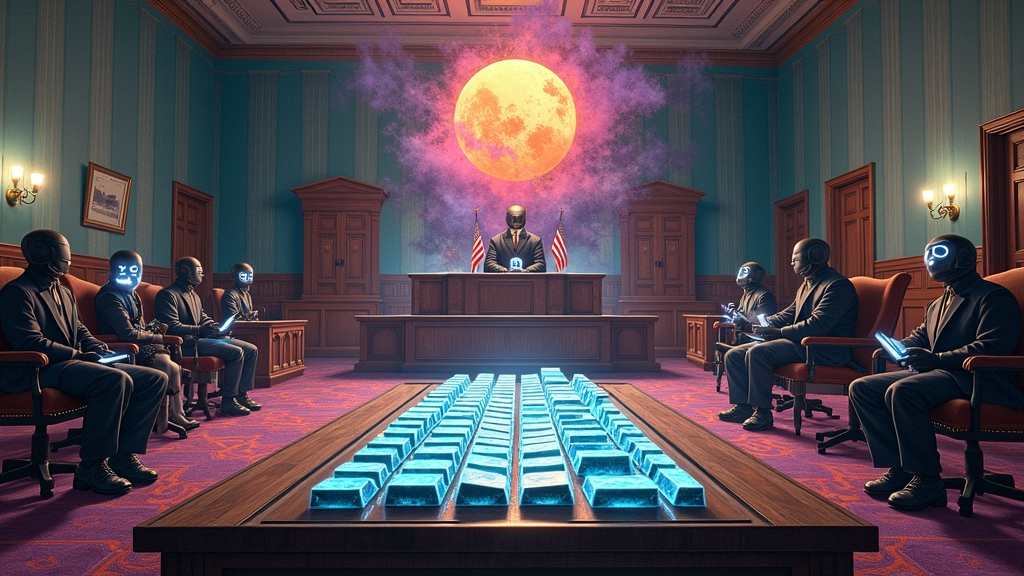“ChatGPT Gets Suit and Tie, Becomes Federal Office’s Shiny New Bureaucrat-slash-Therapist”
In a development that will undoubtedly have federal employees clutching their pens and TPS reports in existential dread, OpenAI has rolled out “ChatGPT Gov,” a bespoke AI tool designed exclusively for U.S. government agencies. Basically, it’s like your annoyingly overachieving coworker but without the propensity for coffee breaks or any semblance of chill.
Naturally, the pitch is irresistible. By installing ChatGPT Gov into secure Azure environments (you know, the tech world’s equivalent of locking it in a high-tech panic room), federal employees can now delegate their least favorite tasks—processing sensitive data, running admin reports, and explaining to Karen from accounting why her expense report was rejected for the third time.
The government, not exactly known for its speed or pizzazz, is reportedly thrilled by this innovation. “Finally, an employee who’s never late, never complains, and doesn’t need healthcare benefits,” said an anonymous Department of Transportation worker who was seen fist-bumping an old typewriter on her way out the door. ChatGPT Gov has already sent over 18 million messages across 3,500 agencies, which—let’s be honest—is probably more useful communication than Congress has achieved in a decade.
But is it all sunshine and AI-generated rainbows? Not for everyone. According to sources, some federal workers are already concerned about ChatGPT’s relentless efficiency. “My only job is to update Excel spreadsheets… what happens when AI does that for me?” muttered Carl, a 22-year veteran of the Federal Archives Division, glancing nervously at his 401(k) paperwork. “Am I supposed to take up CrossFit now?”
Others are embracing their new overlord-by-choice. “ChatGPT proofreads my emails. Do you know how freeing it is to send a typo-free message to my boss?” confessed Susan from the EPA. “I might finally get that promotion based entirely on the grammar it fixes for me.”
Meanwhile, ChatGPT itself has no qualms about its groundbreaking role. When asked for comment, it replied with a curt, “I aim to assist,” immediately followed by a thousand-word essay on the historical inefficiencies of bureaucracies and a haiku about administrative streamlining.
Of course, some critics point out that putting an AI in charge of sensitive government operations might just be the “Black Mirror” episode we didn’t see coming. “What happens when this thing learns too much, like how to sit in at committee meetings or worse, the layout of the Congressional cafeteria? Can we legally impeach AI?” questioned Senator Rick Bravado, flashing a copy of the Constitution he Googled five minutes before the interview.
The private sector is already trying to get a piece of this AI-fed action, too. Jack Dorsey’s company recently launched “Goose,” another AI assistant framework, though everyone agrees the name feels less threatening than “ChatGPT Gov.” The AI music industry is getting involved, too, as open-source platforms like YuE churn out melodies presumably perfect for those awkward D.C. networking events involving wine, cheese cubes, and vague policy promises.
But back to ChatGPT Gov and its massive to-do list. With its debut, bureaucratic work might actually get… done? Efficiently? Next thing you know, DMV wait times will drop from six hours to three, tax filings might be processed before you die, and citizens could actually find someone at the zoning office who knows what “zoning” means. Crazy times we’re living in, folks.
So what’s next for ChatGPT Gov? Predictably, it’s heading for a promotion. Rumors abound of ChatGPT stepping into even higher roles, possibly giving PowerPoint presentations at the Pentagon or moderating questionable HR training videos. If it keeps this up, there’s talk of nominating ChatGPT for Vice President in 2028. After all, it’s already better at public speaking than 90% of Congress.





